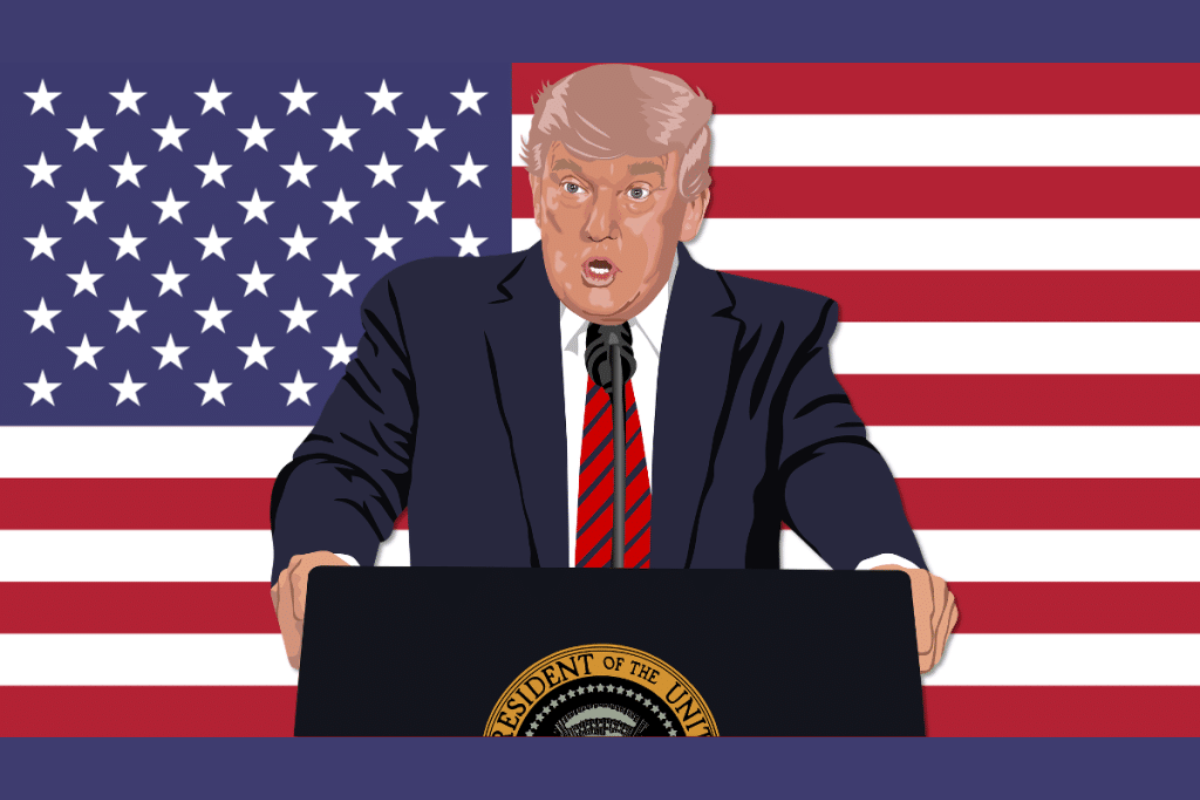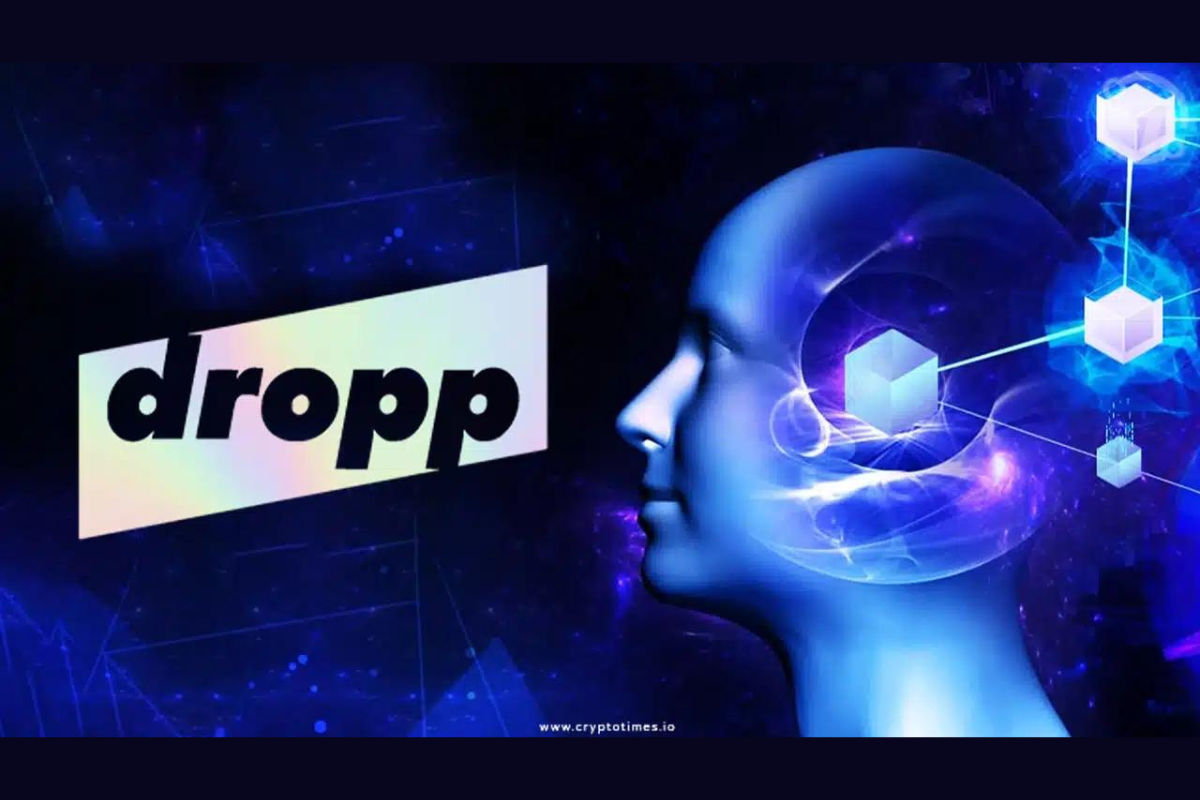Blockchain Press Releases
AI and Security: Ensuring That Opportunities Outweigh the Threats, Reports IDTechEx

BOSTON, July 3, 2023 /PRNewswire/ — Anyone with access to social media platforms will likely have heard of ChatGPT by now. Created by OpenAI and released in November 2022, the generative AI tool had 100 million registered users as of three months after release, with it – the world’s most advanced chatbot – being used to answer simple queries, write songs, and draft press releases, all with varying degrees of success. While in the creative domain, ChatGPT is not (yet) a match for the human mind, its capabilities are nothing less than staggering, with the potential to transform entire workflows. Yet, along with the opportunities afforded by generative AI, there are risks. In IDTechEx’s recent “AI Chips 2023-2033” report, IDTechEx forecast that the global AI chips market will grow to exceed US$250 billion by 2033, with the IT & Telecoms, BFSI (Banking, Financial Services and Industrial), and Consumer Electronics industry verticals leading the way in terms of revenue generated up to 2033. This growth is made possible by the growing complexities and functionalities of machine learning models, representing significant opportunities for both businesses and consumers. However, improper use of AI tools represents threats to the aforementioned groups. Measures must be taken to ensure that the opportunities afforded by advanced AI greatly outweigh the threats.
Questions of Ownership and Culpability
ChatGPT, DALL-E 2, and Siri are all examples of generative AI tools. These are systems capable of generating text, images, or other media in response to prompts, where the data produced is based on the training data sets employed to create and refine the models used. Current intellectual property (IP) laws are not particularly well-suited to account for the legal ownership of intangible assets such as those that AI tools such as these can generate. Patent law generally considers the inventor as the first owner of the invention. In the case of AI, who invents? The human creates the (initial) prompt, but it is the AI tool that creates the output. An AI may also be used to prompt other AI tools, and so AI can act as both the prompt and the creator. But granting an AI tool IP ownership status – as it currently stands – necessarily gives the AI the same status extended to a legal person.
Therein is the question of culpability and ethics; if the AI is the legal owner of a piece of work, then the human that deployed, commissioned, or used the AI tool is exempt from culpability. This could be considered unethical, as the human user should bear some responsibility for the ethical ramifications of using such an AI tool (particularly in the case of unlawful AI use, such as assistance with writing a script for malware). A possible way around this is to grant the AI the same legal status as a child, wherein the human user would be analogous to a child’s guardian, and so bear some responsibility, while the AI would still retain ownership. While this ensures that the human user bears responsibilities for the AI tool’s actions, it does not adequately address autonomous AI, where no human prompting is necessary. In addition, there may be some discomfort from legislators around bestowing legal status onto machines.
Other parties that should be considered are the developers of the AI tool, as well as the owners of the data that comprise the dataset used to train the AI tool (a key component of the reasoning behind Italy’s ban of ChatGPT in March 2023). The answer to ownership is one that will be sought more urgently as AI tools and their outputs grow, as they surely will over the coming years.
Malpractice
Where AI can be used for good intentions – such as assisting with the appropriate syntax for computer script writing and detecting fraudulent financial transactions – it can also be used for ill, ranging from the deceptive to the illegal. Given that generative AI tools can be used to assist with script writing, it does not particularly matter to the tool what type of script is being written. As such, generative AI can be used to assist with the writing of malware (malicious software). The AI tool used has, of course, not intentionally created a piece of malware, but this potential mistreatment of a nominally apathetic system needs to be addressed.
Generative AI is very effective for streamlining certain work functions, such as advertising copy and marketing materials. And yet, the question remains of ownership and culpability. From marketing to consumers (where companies will ultimately still be liable for ambiguous or defamatory language) to academic institutions (where the use of a language tool by a student to write a part of their thesis calls into question the legitimacy of their conferred degree), clear guidelines – regulatory and legal – need to be given for fair use of such tools.
Ultimately, we are still a long way off from the types of existential threats posed by AI that are central to seminal works of science fiction, such as 2001: A Space Odyssey and The Terminator. And yet, even as AI technology advances towards Artificial General Intelligence, clear practices and codes of conduct are needed to ensure that risks are appropriately mitigated, such that AI transforms industries for the better. Opportunities across the three aforementioned industry verticals and others are discussed in the new IDTechEx report, “AI Chips 2023-2033“.
Report Coverage
IDTechEx forecasts that the global AI chips market will grow to US$257.6 billion by 2033. The report covers the global AI Chips market across eight industry verticals, with 10-year granular forecasts in seven categories (such as by geography, chip architecture, and application). In addition to the revenue forecasts for AI chips, costs at each stage of the supply chain (design, manufacture, assembly, test & packaging, and operation) are quantified for a leading-edge AI chip. Rigorous calculations are provided, along with a customizable template for customer use, and analyses of comparative costs between leading and trailing edge node chips.
IDTechEx’s latest report, “AI Chips 2023-2033“, answers the major questions, challenges and opportunities faced by the AI chip value chain. For further understanding of the markets, players, technologies, opportunities, and challenges, please visit www.IDTechEx.com/AIChips.
About IDTechEx
IDTechEx guides your strategic business decisions through its Research, Subscription and Consultancy products, helping you profit from emerging technologies. For more information, contact [email protected] or visit www.IDTechEx.com.
Images download:
https://www.dropbox.com/scl/fo/l9tm12qdbeffk4fibomqp/h?dl=0&rlkey=aa8u8cmfyw5f8n2koxyr9803r
Media Contact:
Lucy Rogers
Sales and Marketing Administrator
[email protected]
+44(0)1223 812300
Social Media Links:
Twitter: www.twitter.com/IDTechEx
LinkedIn: www.linkedin.com/company/IDTechEx
Photo: https://mma.prnewswire.com/media/2145182/AI_chips_revenue_2023.jpg
Logo: https://mma.prnewswire.com/media/478371/IDTechEx_Logo.jpg
![]() View original content:https://www.prnewswire.co.uk/news-releases/ai-and-security-ensuring-that-opportunities-outweigh-the-threats-reports-idtechex-301867931.html
View original content:https://www.prnewswire.co.uk/news-releases/ai-and-security-ensuring-that-opportunities-outweigh-the-threats-reports-idtechex-301867931.html

Blockchain
DTCC partners with Chainlink and JPMorgan to pilot blockchain integration for fund data

As headlines spotlight spot Bitcoin (BTC) exchange-traded fund (ETF) flows and institutions revealing their exposure to BTC ETFs, financial service infrastructure providers are quietly integrating blockchain technology into their systems.
According to a recent report from the Depository Trust & Clearing Corporation (DTCC), the firm conducted a pilot program named Smart NAV in collaboration with Chainlink (LINK). This initiative aimed to extend the capabilities of DTCC’s Mutual Fund Profile Service I (MFPS I), the industry standard for transmitting ‘Price and Rate’ data, also known as ‘NAV data.’
DTCC’s Mutual Fund Services business currently operates MFPS I, offering fund companies an automated solution to deliver prices and daily distribution rates to numerous clients for tens of thousands of mutual fund securities. Traditionally, DTCC collects price and rate data from funds/service providers and distributors, then aggregates and disseminates it at regular intervals through its message queue (MQ) and file-based methods.
The Smart NAV Pilot served as a digital extension of the existing MFPS I service, aiming to broaden and complement its current capabilities. DTCC recognized the growing interest in mutual fund tokenization and saw an opportunity for on-chain price and rate data to facilitate new initiatives. Taking a ‘chain-agnostic’ approach, meaning the ability to disseminate NAV data across virtually any blockchain, was crucial for enabling other use cases to build upon Smart NAV’s foundations.
Ten market participants, including major names like American Century Investments, BNY Mellon, and JP Morgan, collaborated with DTCC and Chainlink on the pilot. They evaluated the feasibility and industry value of implementing a distributed ledger technology (DLT)-based price and rate dissemination solution to unlock new benefits and support experimentation in the asset management space.
The pilot results demonstrated that delivering structured data on-chain and establishing standard roles and processes enabled foundational data to be integrated into various on-chain use cases, such as tokenized funds and bulk consumer smart contracts. This capability can fuel future industry exploration and empower numerous downstream use cases, including brokerage portfolio applications.
The simplest application of Smart NAV is to provide trusted, verifiable data on virtually any blockchain network to support its use in business workflows. During the pilot, DTCC acted as both the provider and governor of the on-chain data solution, while Chainlink’s CCIP served as the interoperability layer. The core capability explored is adaptable across a wide range of use cases, potentially enhancing operational efficiency and streamlining processes.
Based on the positive findings, DTCC sees an opportunity to expand the scope of the pilot to explore broader use cases beyond price and rate data dissemination and across more blockchains.
Source: kitco.com
The post DTCC partners with Chainlink and JPMorgan to pilot blockchain integration for fund data appeared first on HIPTHER Alerts.
Blockchain
Is Donald Trump’s Recent Crypto-Friendly Stance Genuine Or Opportunistic? Experts Weigh In

Presidential candidate Donald Trump recently made a surprising endorsement of crypto, suggesting that he would ease hostility towards cryptocurrencies in the US if re-elected.
Trump stated, “If we’re going to embrace it, we have to let them be,” and urged crypto supporters to vote for him. This marks a significant shift from his previous criticisms of Bitcoin and other cryptocurrencies in 2019, where he labeled them as “not money” due to their volatility and lack of intrinsic value, expressing concerns about their potential use in illegal activities like drug trafficking.
Crypto’s Impact on Voter Preferences
With approximately 20% of American adults reportedly holding crypto, candidates are taking notice. Markus Levin of XYO Network sees embracing crypto and implementing solid regulation as a strategic move in elections and sound policy overall. He believes Trump’s apparent positive stance towards the industry will sway some voters in his favor.
Jonathan Thomas of Blueberry suggests that Trump’s crypto-friendly rhetoric may attract voters who prioritize crypto as a single-issue matter.
Skepticism Surrounding Trump’s Crypto Support
However, not everyone is convinced by Trump’s newfound endorsement of crypto. NFT enthusiast Thorne Melcher views it as “flimsy” and warns against the potential for conservative politics to restrict crypto due to its use in areas such as trans hormone replacement therapy and abortions.
While some may see Trump’s support for crypto as a reason to vote for him, others like Stephanie Vaughan of Veda caution against assuming substantial benefits from this endorsement alone. Vaughan highlights the Biden Administration’s hardline stance on crypto regulation by enforcement, which she believes is unworkable and could push voters towards Trump.
Trump’s Strategy to Attract Crypto Voters
Trump’s pivot from crypto skeptic to NFT enthusiast reflects a strategic move to appeal to voters interested in crypto. Vaughan suggests that many crypto-focused voters may have supported Biden in the last election, but Trump is actively courting them by recognizing the industry’s significance.
By acknowledging crypto’s growing influence on voters, Trump aims to draw support away from Biden, positioning himself as the candidate more aligned with the interests of the crypto community.
Source: cryptonews.com
The post Is Donald Trump’s Recent Crypto-Friendly Stance Genuine Or Opportunistic? Experts Weigh In appeared first on HIPTHER Alerts.
Blockchain
droppGroup Unveils Platform with AI-Blockchain Integration

droppGroup, a trailblazer in amalgamating blockchain and artificial intelligence, has unveiled droppLink, an innovative service platform poised to potentially revolutionize AI management and development across various blockchains. The architecture of droppLink empowers users with control over data contributions, abstracts computational requirements, and streamlines micropayments.
Stakeholders, dubbed Computational Resource Patrons (CRPs), contribute to the infrastructure costs and share profits from the facilitated AI operations.
As a web3 development firm, droppGroup specializes in deploying patented innovations in AI, machine learning (ML), object recognition, streaming, crypto, augmented reality (AR), virtual reality (VR), and mixed reality (MR). droppGroup is now advancing multi-modal AI systems with droppLink.
Gurps Rai, co-founder and CEO of droppGroup, explains that droppLink tokenizes each stage in an AI model’s lifecycle across multiple blockchains, such as Solana, Polygon, Ethereum, Base, and Hyperledger Fabric 2.5, ensuring unparalleled data integrity and expediting AI development.
Rai added, “This process upholds data ownership rights while establishing a transparent, immutable usage record via our Proof of Gen and Data Genesis protocols.”
Christopher J. Kelly, co-founder and president of droppGroup, underscores the company’s commitment to pushing the boundaries of multi-modal AI systems at the convergence of physical and digital realms, introducing cutting-edge solutions to the market.
Scheduled to speak on the monitoring and evaluation panel at the AWS Summit on May 22, Kelly will address topics like data integrity in AI and its alignment with the company’s mission.
With the AI market projected to reach $297 billion by 2027, ethical considerations such as data provenance, intellectual property protection, and fair compensation are paramount.
Accessible through droppPhygital, droppLink leverages multi-chain integration and robust tokenization to bolster data integrity. By melding blockchain technology with artificial intelligence, droppLink establishes an ethical management layer, aiming to reshape the AI landscape by fostering trust, transparency, and innovation.
Source: cryptotimes.io
The post droppGroup Unveils Platform with AI-Blockchain Integration appeared first on HIPTHER Alerts.
-

 Blockchain Press Releases3 days ago
Blockchain Press Releases3 days agoSwaps Launches Innovative Payment Links for Crypto and Fiat Transactions
-

 Blockchain Press Releases3 days ago
Blockchain Press Releases3 days agoBybit’s Ethereum Euphoria: Predict Market Movements for the ETH ETF and Win
-

 Blockchain5 days ago
Blockchain5 days agoRevoluGROUP Canada Inc. Announces Leave of Absence for Chairman Bernard Lonis
-

 Blockchain Press Releases3 days ago
Blockchain Press Releases3 days agoOKX, Circle, and Bitrue Among Sponsors of Consensus 2024
-

 Blockchain2 days ago
Blockchain2 days agoOKX Announces Support for New USDC Spot Trading Pairs
-

 Blockchain Press Releases3 days ago
Blockchain Press Releases3 days agoBybit Launches Exclusive P2P Trading Offers for SEA Users
-

 Blockchain Press Releases3 days ago
Blockchain Press Releases3 days agoUnleash a Wave of Opportunities this May with Bybit
-

 Blockchain Press Releases2 days ago
Blockchain Press Releases2 days agoBybit Enhances Crypto Spending with Easy 2% Cashback Rewards































